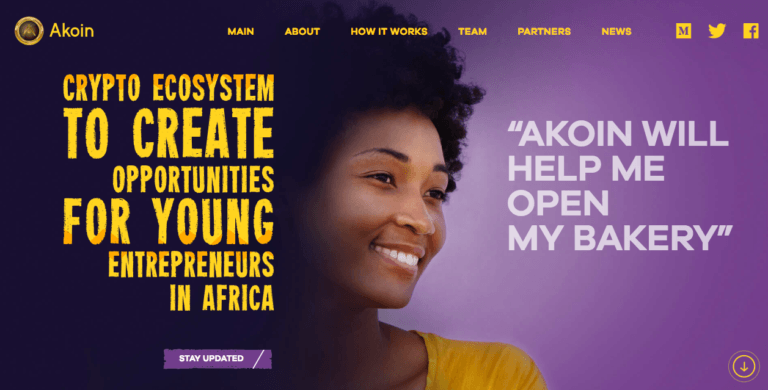On 19 June 2018, as covered by CryptoGlobe, American rap and R&B singer, songwriter, record producer, entrepreneur, and philanthropist Akon, while in Cannes, France, announced his plans to launch a new cryptocurrency called Akoin with the aim of helping people in Africa. Last week, on 18 August 2018, via a report in Vice, we got an update on how the project was going.
Back in June, Akon explained the motivation for the project:
“I think that blockchain and crypto could be the savior for Africa in many ways because it brings the power back to the people and brings the security back into the currency system and also allows the people to utilize it in ways where they can advance themselves and not allow government to do those things that are keeping them down.”
Akon, who was born in the U.S. but raised in Senegal, since retiring from music back in 2010, has been spending much of his time in Africa, “working on bringing 21st century stability and infrastructure to underdeveloped regions.” His first major project in Africa came in 2014, which is when he set up a charity called Akon Lighting Africa (ALA), which was a solar energy initiative that had the goal of bringing electricity to more than 600 million people in rural Africa who have no access to electricity in their homes. Since then, the program claims “to already have covered 480 communities and erected over 100,000 solar street lamps.”
His latest project, though, is even more interesting and ambitious: “a planned city in Senegal where the economy would run entirely on his own cryptocurrency, AKoin”; this proposed city has been given the nickname the “real-life Wakanda”.
The launch party for Akoin was held on 7 August 2018 in Los Angeles. There, Akon told Vice reporter Justin Caffier:
“This coin is focused specifically on Africa. Businesses that could be utilized in Africa, the population that can be using it in Africa, and, more importantly than anything, the entrepreneurs that can be developed and honed in Africa.”
Akon believes that AKoin “would best serve nations with currencies destabilized by runaway inflation or corrupt governments, as the public ledger of blockchain guards against malfeasance”, and that it would allow users to “control their own economy and control their own destiny.”
Although Michael Kimani, the chairman of the Blockchain Association of Kenya, told the BBC on 23 June 2018 that he thinks that Akoin is “pie-in-the-sky”, Ryan Scott, a founding partner of both AKoin and crypto investment firm ICO Impact Group, who calls the project “an app store for African entrepreneurship”, says that “AKoin’s intentions are noble and its feasibility is grounded, noting the lack of transaction fees for users and the myriad ways citizens can earn coins while just going about their daily lives.”
Only businesses operating on the platform need to pay. The idea is that with its zero transaction fees for ordinary users, Akoin could allow them to passively earn income “by signing up to be on standby for some of the apps, pingable as first responders for local 911-esque services or peer-to-peer neighborhood watch groups.” Scott further added:
“They don’t call them this in Africa, but at, like, bodegas—wherever you can top off your minutes, you [will be able to] buy AKoin. We’re also striking deals now with point-of-sale providers so you’ll be able to spend it. So, this is really going to be one of the first consumerized cryptocurrency offerings that can be used practically on a day-to-day basis.”
Although construction work on the proposed 2,000 acre “Akon Crypto City” has not yet started, Akon says that he is happy that the developers are taking their time:
“Dubai faced the same thing. You’re building a city fast and there’s a lot of excitement and a lot of money spent. But it all depends on the person spending the money and how they project their funds to come back. There will be bankers [in the crypto city], financial advisors, business managers, and hedge fund managers. They’ll all be a part of this ecosystem.”
Featured Image Credit: Image Courtesy of Akoin









